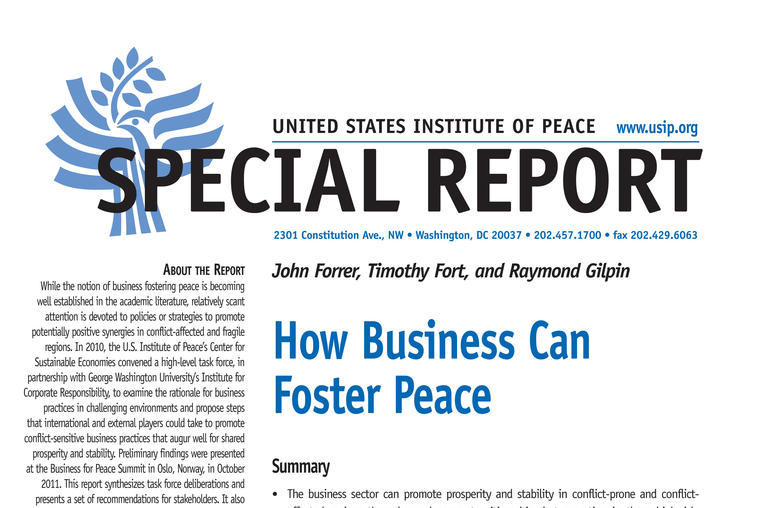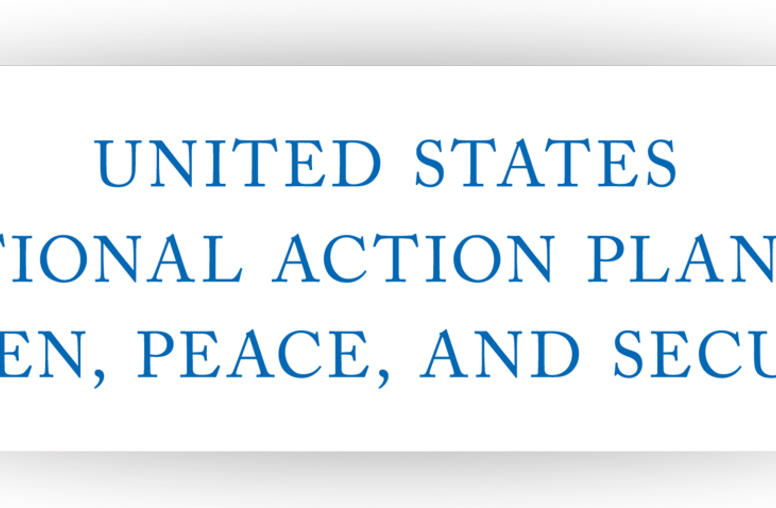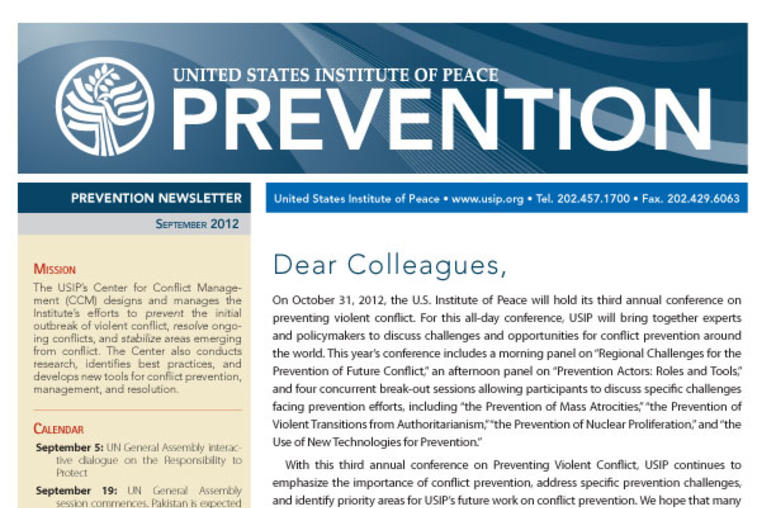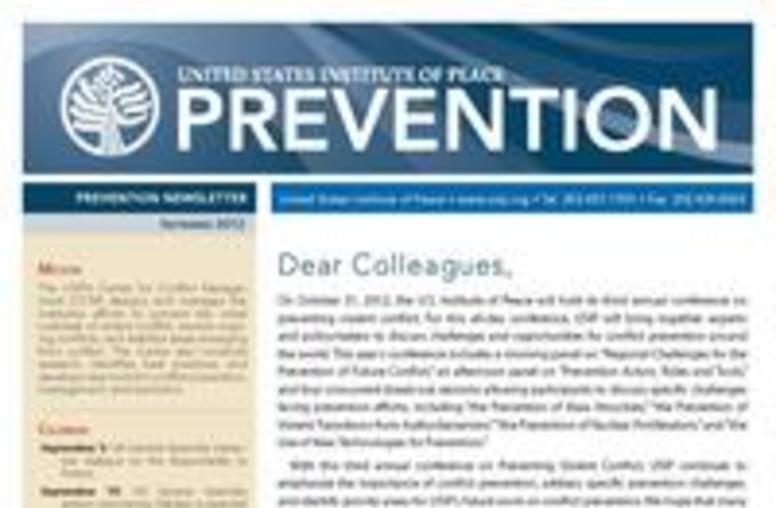Publications
Articles, publications, books, tools and multimedia features from the U.S. Institute of Peace provide the latest news, analysis, research findings, practitioner guides and reports, all related to the conflict zones and issues that are at the center of the Institute’s work to prevent and reduce violent conflict.

The U.S. Surge and Afghan Local Governance
The U.S. civilian and military surge in Afghanistan aimed at transforming local governance, but it fell short because the strategy assumed that progress on security and governance would go hand in hand and that bottom-up progress would be reinforced by the national government. Going forward, the international community should focus on a few key governance issues to address and use the Strategic Partnership Agreement as a vehicle for long-term planning.
USIP Mourns Loss of U.S. Ambassador and 3 Staffers, Killed in Libya
Following the deaths of the U.S. ambassador to Libya and three consulate staff on Sept. 11, USIP’s president said, “[Their] deaths remind us all of the courage and sacrifices made by our State Department partners… [It] is a tragic loss for the country and the Institute – and indeed for the cause of peace and stabilization in Libya.”

Colombian Peace Talks
The Colombian government announced that it will begin peace negotiations with the Colombian Revolutionary Armed Forces (FARC), signaling a potential end to the hemisphere’s longest-running armed conflict. USIP’s Virginia Bouvier examines the steps ahead.

How Business Can Foster Peace
There are many ways businesses can and do promote peace in conflict zones, but smart strategies will take into account the firms’ size, ownership, industry, and the degree to which they are connected to local supply chains.
NPEC Awards Week 2012: The Power of Collective Action
Gabe Salmon, 2011-2012 National Peace Essay Contest State-level Winner from Arizona, shares his experiences during awards week in Washington, DC.

U.S. Agencies Move to Implement National Action Plan on Women, Peace and Security
For the past two years, USIP has been deeply engaged in supporting a government’s initiative on women, peace and security. The U.S. Department of State and the USAID recently issued detailed implementation plans to carry forward the U.S. National Action Plan on Women, Peace and Security.
Promoting Peace in Petroleum-Rich Regions
Raymond Gilpin, USIP's Center for Sustainable Economies director, discusses how a USIP project to analyze the vulnerability of energy infrastructure in fragile, resource-rich countries could inform policy-making and strengthen efforts to secure peace.

USIP Prevention Newsletter - September 2012
The September 2012 Prevention Newsletter features a spotlight on The Syrian Civil War: Threatening Lebanon's Fragile Stability: Syria's year-and-a-half long internal strife has not only challenged Lebanon with tens of thousands of refugees, gun battles on the border and kidnappings, but reignited tensions along Lebanon's own sectarian fault lines.

USIP Prevention Newsletter - September 2012
The September 2012 Prevention Newsletter features a spotlight on The Syrian Civil War: Threatening Lebanon's Fragile Stability: Syria's year-and-a-half long internal strife has not only challenged Lebanon with tens of thousands of refugees, gun battles on the border and kidnappings, but reignited tensions along Lebanon's own sectarian fault lines.

Peace Economics
Creating sound economic policy and a stable macroeconomic framework is essential to societies recovering from violent conflict, yet few practitioners have the background needed to apply economic concepts effectively. To provide practitioners with a concise but broad overview of macroeconomic fundamentals as they touch on violence afflicted states, Brauer and Dunne have created Peace Economics. Filling a gap in the literature on peace design from an economic perspective, Peace Economics extend...